Two faith events in OKC highlight Oklahoma's current division over religion and politics
- Oops!Something went wrong.Please try again later.
Gov. Kevin Stitt repeated a line from his State of the State address on Tuesday.
"As for me and my state, we will serve the Lord," he said, drawing applause from a crowd gathered for the Oklahoma Governor's Prayer Breakfast.
Just a few hours later, the governor's remarks were discussed at an Interfaith Impact Luncheon, but instead of applause, several speakers voiced their disapproval over Stitt's wording.
More: Gov. Stitt quoted Scripture in a recent speech, but religious leaders are taking issue. Here's why.
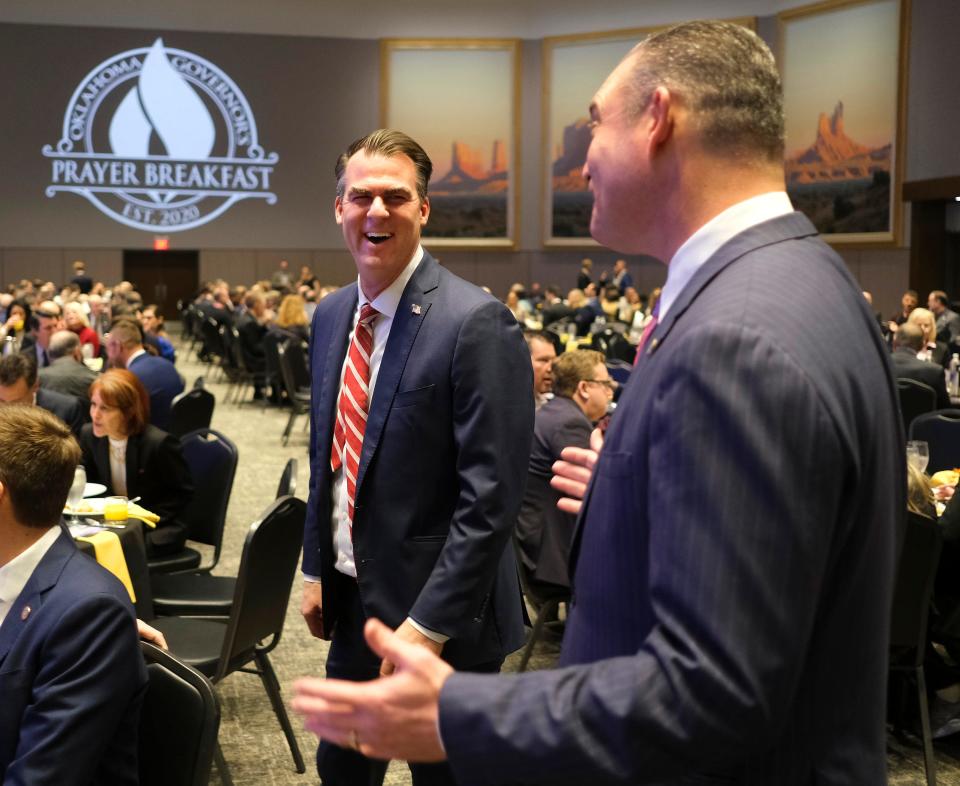
The breakfast and luncheon both focused on religion and faith in the public square, but that's where the similarities ended.
The breakfast event included Oklahoma teenagers who took to the stage to share prayers they wrote with the crowd. Attendees prayed for state law enforcement and all first responders, the judiciary, legislators and the current legislative session, the governor and his Cabinet and Oklahoma's congressional delegation. An inspirational keynote presentation was presented by Pete Portal, pastor, author and co-founder of Tree of Life Manenberg in South Africa.
"We are living in a time when it seems each day we invent new ways to divide ourselves," said the Rev. Joel Harder, event host and president of the nonprofit Oklahoma Capitol Culture, which coordinated and hosted the breakfast. Harder said the event had no agenda except to pray for Oklahoma's elected leaders as the new legislative session began, "for God to bless them and their families."
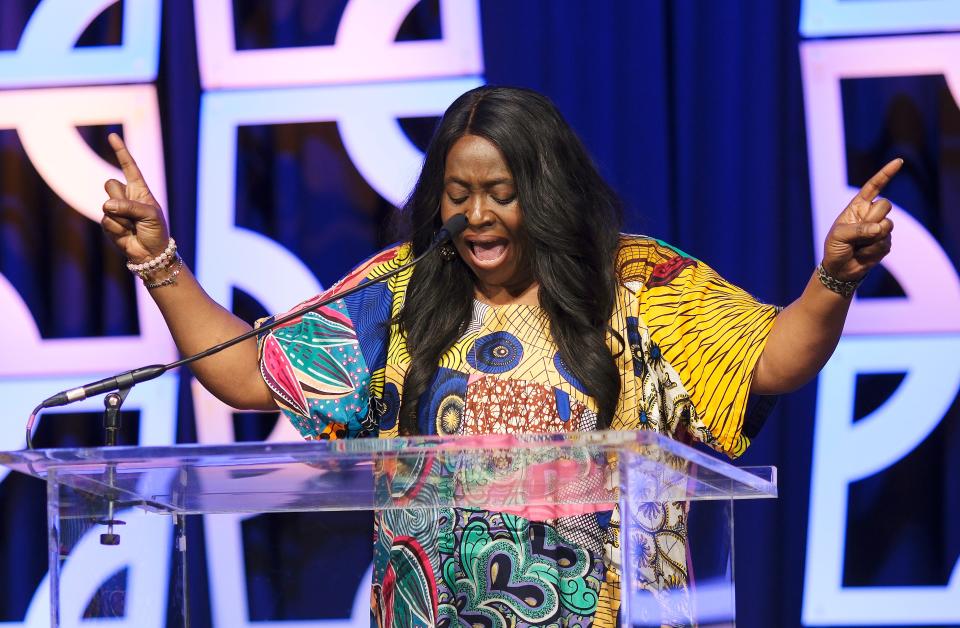
Held for the fifth year, the prayer breakfast at the National Cowboy & Western Heritage Museum, was decidedly Christian, although Harder emphasized that prayer is a unifying force for people of many different faith traditions.
At interfaith luncheon, an opening prayer, and a discussion on the separation of church and state
By contrast, organizers of the luncheon said they intentionally hosted the event on the same day as Stitt's prayer breakfast to bring people of different faiths and no faith together to offer prayers and reflections for legislative session. They said the event also was held to discuss how people can support the principle of separation of church and state because it is vital to maintaining religious freedom in Oklahoma and the U.S.
The Rev. Shannon Fleck, executive director of the Oklahoma Faith Network (formerly Oklahoma Conference of Churches), said she and other organizers had initially thought to host a breakfast that would be much different from the governor's prayer event because of its interfaith focus. But she said they decided to host an interfaith luncheon instead to give people an opportunity to attend both events if they chose.
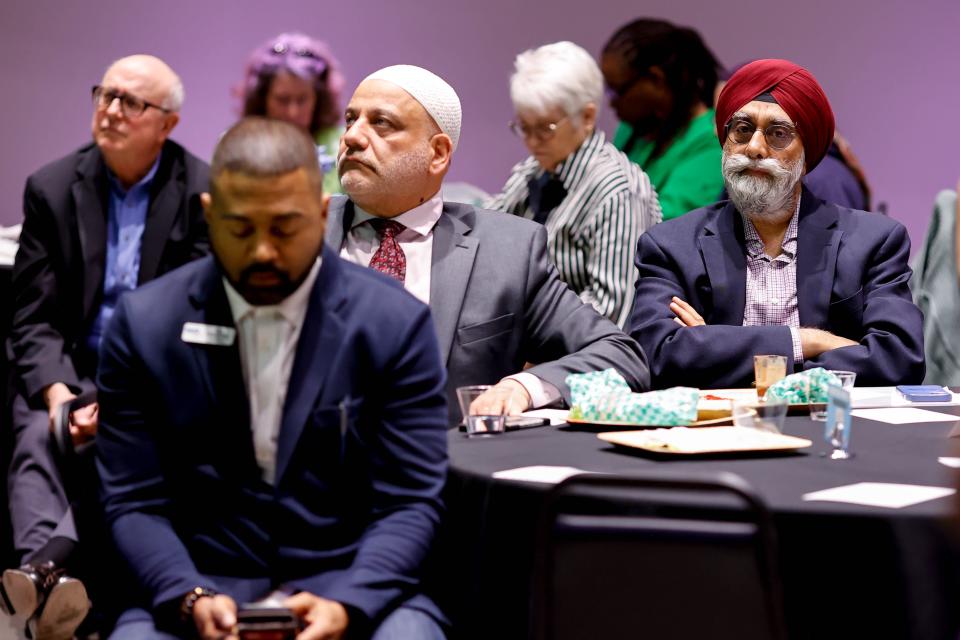
The luncheon held at the First Americans Museum opened with a homage to Indigenous cultures by Phil Armstrong, president and chief executive officer of the Oklahoma Center for Community and Justice; a joint prayer by Aliye Shime, a Muslim from Tulsa who is director of the Tulsa Metropolitan Ministry, and Dan Kaiman, principal rabbi of Tulsa's Temple Bnai Emunah; and a prayer by Saurabh R. Singh, a member of the Sikh faith tradition serving as Interfaith Alliance of Oklahoma president.
"Bless us with your wisdom to understand our neighbors so we may coexist with love and understanding," Singh said in his prayer.
A panel discussion about challenges to the principle or concept of separation of church and state included panelists Tamya Cox-Toure, ACLU-Oklahoma executive director; Sarah Taitz, an attorney with the Americans United for Separation of Church and State; and James Cooper, Oklahoma City Ward 7 council member. The Rev. Chris Moore, Tulsa Metropolitan Ministry board president and lead pastor of Fellowship Congregational United Church of Christ in Tulsa, sat on the panel briefly before Cooper arrived.
Fleck, serving as moderator, asked panelists to show how people should respond when someone tells them the principle of separation of church and state is not in the U.S. Constitution.
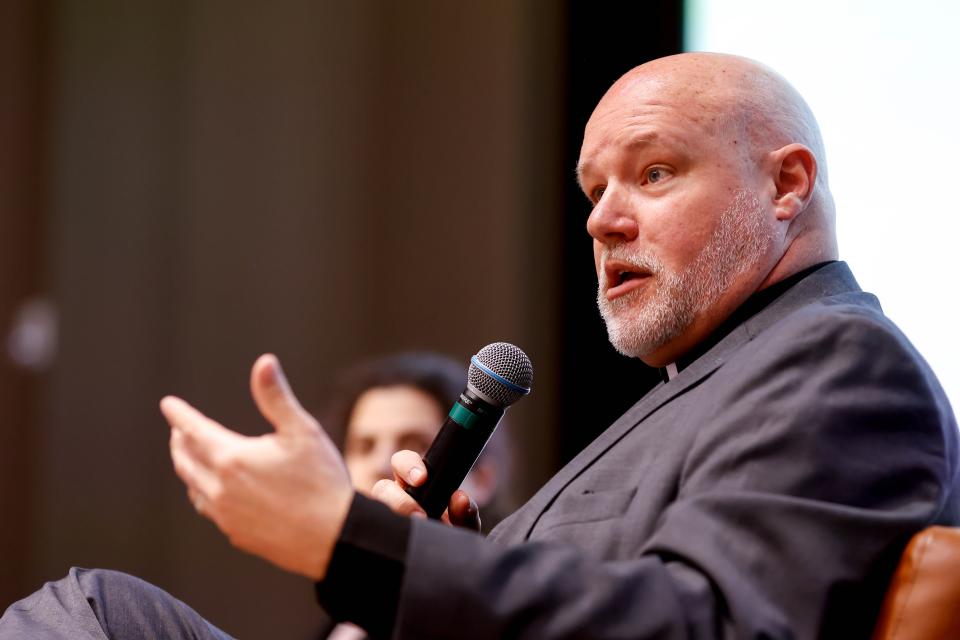
Taitz said the words "separation of church and state" are not in the U.S. Constitution, but this is not "really a 'gotcha' that some on the religious extremist side seem to think that it is." She said it is a secular document which says that the government must not establish a national religion and all Americans have a right to free exercise of their religion.
"Those ideals are embedded in the Constitution," Taitz said.
More: Could Oklahoma voters be asked to amend state constitution to address personhood?
Cox-Toure said the Oklahoma Constitution has stronger language when it comes to the separation of church and state. She reminded attendees that in 2016, a majority of Oklahomans rejected a "religious liberty" state question that was designed to repeal Section 5 of Article 2 of the Oklahoma Constitution, which prohibits public money from being spent for religious purposes.
Meanwhile, Moore said he wasn't surprised that Stitt repeated his paraphrasing of scripture from the Book of Joshua at the governor's prayer breakfast. The minister recently helped distribute a letter signed by more than 20 Oklahoma religious leader that outlined their criticism of the governor's tweaking of that scripture and other biblical references in his State of the State.
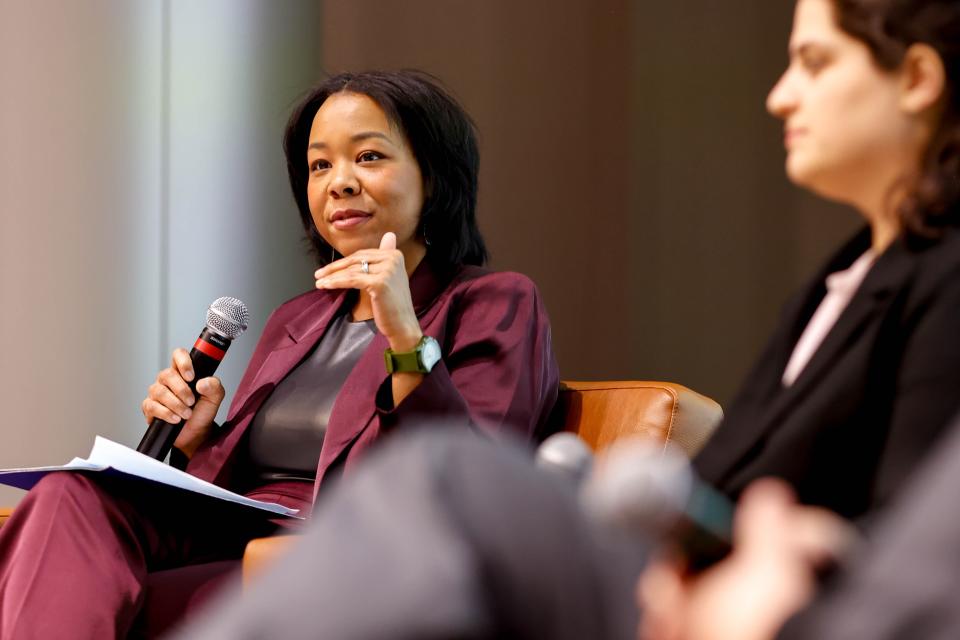
"There seems to be a strong move toward a monolithic expression of those things (Christianity)," he said. "That's a religion I belong to, but it isn't an expression I belong to. Who gets to decide which version we are putting out there? That's the danger in this."
The luncheon ended with Cox-Toure and Fleck sharing about several bills proposed in the current legislative session that they see as violations of separation of church and state. Fleck said the bills seem to be part of the Christian nationalism movement.
"The voices seeking to repress the separation of church and state are incredibly loud," Fleck said.
This article originally appeared on Oklahoman: Two Oklahoma events show contrasts in the state's religion, politics

